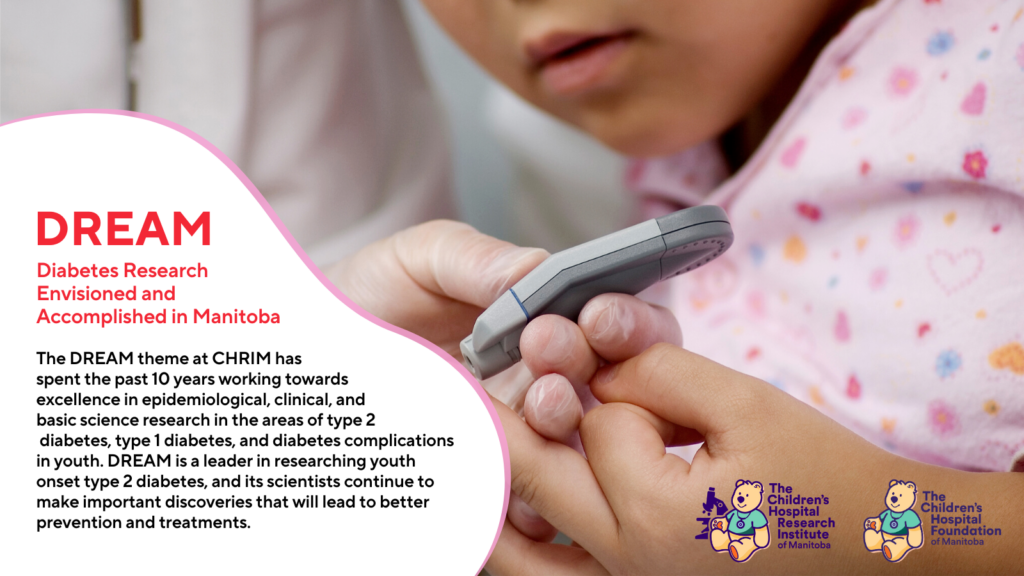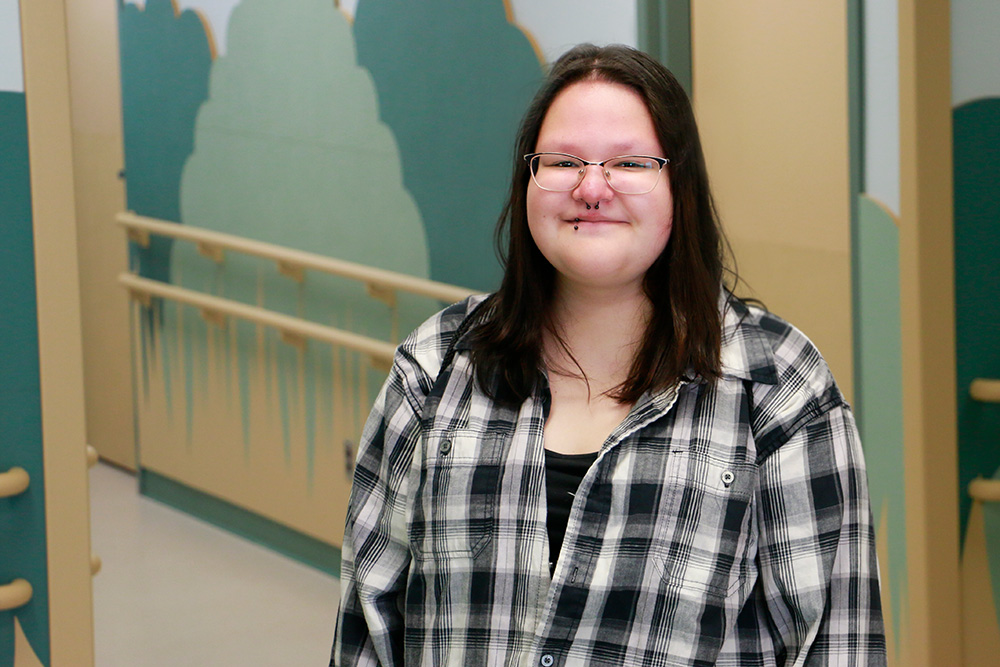
Mental health initiatives are expanding for children and youth with Type 2 diabetes (T2D) thanks to a generous TD Bank Group (TD) grant made earlier this year. The funding will be put towards the Diabetes Research Envisioned and Accomplished in Manitoba Research (DREAM) research theme at Children’s Hospital Research Institute of Manitoba (CHRIM).
Within DREAM, researchers are investigating the determinants, impact and treatment and prevention strategies for children and youth with type 2 diabetes. The iCARE project was launched in 2011 with a primary focus on biological factors to help understand why young people with type 2 diabetes are at risk of developing kidney damage. In 2016, iCARE secured national funding from CIHR, allowing the project to expand into a national multi-centre study with sites in Toronto, Hamilton, Saskatoon, Edmonton, Calgary, Halifax, Ottawa, with plans to expand into Vancouver. The iCARE team is comprised of a network of 23 co-investigators from pediatric endocrinology, nephrology, clinical psychology, epidemiology and statistics across Canada, along with a patient and family advisory group.
The importance of mental health and social factors associated with living with T2D and diabetes care was highlighted by the patient and parent advisory group. Based on that input, the iCARE project adopted a more inclusive framework to assess the biological, psychological, and social factors (BPS) that may increase the risk of kidney injury in children with type 2 diabetes, with the goal to improve treatment and minimize kidney complications.
With the aim to improve self-management of diabetes, iCare launched an Dialectical Behavioral Therapy (DBT) intervention trial. Youth living with type 2 diabetes (aged 14 – 22) are being recruited to participate in a 16-week online group DBT skills training program. DBT is an emotion focused therapy that incorporates elements of mindfulness, distress tolerance and relationship support. It is hoped that the skills gained through the DBT program will support youth to live well with type 2 diabetes and ultimately improve outcomes.
“The DBT program really opened my eyes and taught me how to manage my diabetes, and not to go out of control and hold it together,” says iCARE DBT study participant, Delaney Starr.
“When I found out I had diabetes, I felt alone, and I didn’t know how to feel about it, and I thought that I wasn’t normal. This study really helped me with that. I saw that I’m not alone and there’s other people, especially my age, that have diabetes and go through the same things. So that really helped me a lot.”

A parent of a youth living with type 2 diabetes and iCARE participant also said that “the skills learnt [in DBT] can empower the individual to make healthier decisions, choices and build healthier relationships with themselves, others and food.”
Stay in touch!
Sign up for e-news to get updates on the latest events, news, and stories.
sign up for the newsletter